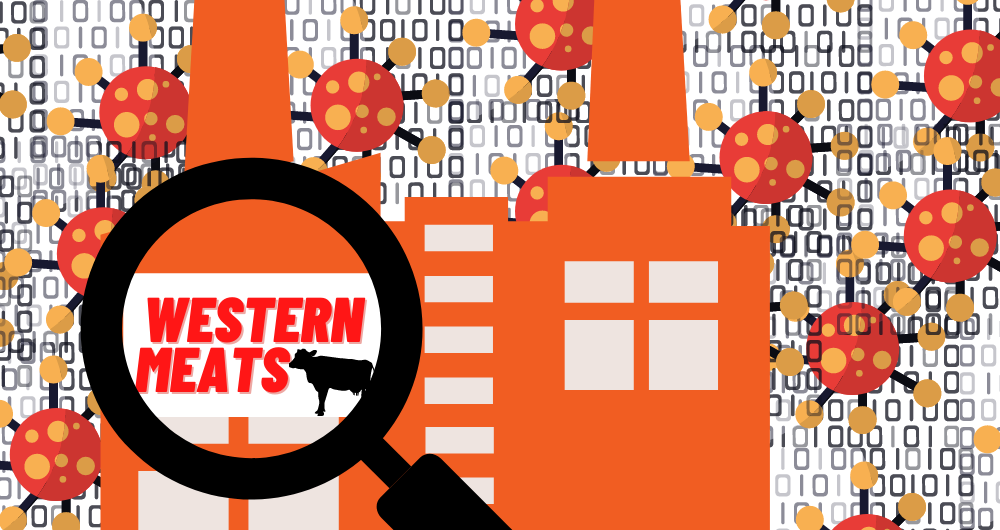
Along with hospitals and care homes, meat processing plants have been hotspots for COVID 19 since the beginning of the pandemic. Dr Andrew McCarren is collaborating on a project called UPCOM; Understanding and Preventing COVID19 Outbreaks in Meat Processing Plants – Prepared for the Future; which received SFI funding in its latest COVID19 Research and Innovation funding round.
“This project represents a very large consortium of universities, government agencies and industry across the European Union, with Irish involvement from the likes of the HSE, the HSA, the food industry, and several universities,” says project leader McCarron, who is an assistant professor in DCU as well as an Insight Centre Funded Investigator.
“Outbreaks in meat processing plants are an ongoing issue: we want to benchmark what the metrics should be, so that when there are clusters in the sector we have established lines of data enquiry. This is a critical component of disease surveillance, particularly when you consider the impact – in one small German town alone, 1500 cases were traced back to one processing plant,” he says.
This week, almost a year on from the first cases of the disease, we are still seeing outbreaks in Irish facilities, with 42 cases confirmed at a Wexford meat plant yesterday.
What are the factors that contribute to these disease concentrations in the processing sector? In order to improve safety for these workers and learn from these outbreaks, we need to ensure that the most complete and useful data is collected, using the right instruments and processed in a manner that leads to meaningful data.
Enter UPCOM. “We will be looking at everything from air conditioning to factory layout, waste water to surface survival. This is a truly multimodal project that seeks to integrate into one data warehouse all the salient data streams available to us. Using data analysis and machine learning we hope to spot patterns in the data, anomalies that can help us flag outbreaks. This effort, we hope, will help to provide us with early warning systems and, because it will be publicly available, it will give stakeholders insights into how to improve systems and make them safer for employees.’
This is the first project of its type, and Dr McCarren is encouraged by it potential, not just for the meat processing sector, but more widely. “This pandemic has made us all think differently about how we do research – the immediate problem has forced us to bring together a vast array of different skillsets to seek solutions. This project will have impact.”